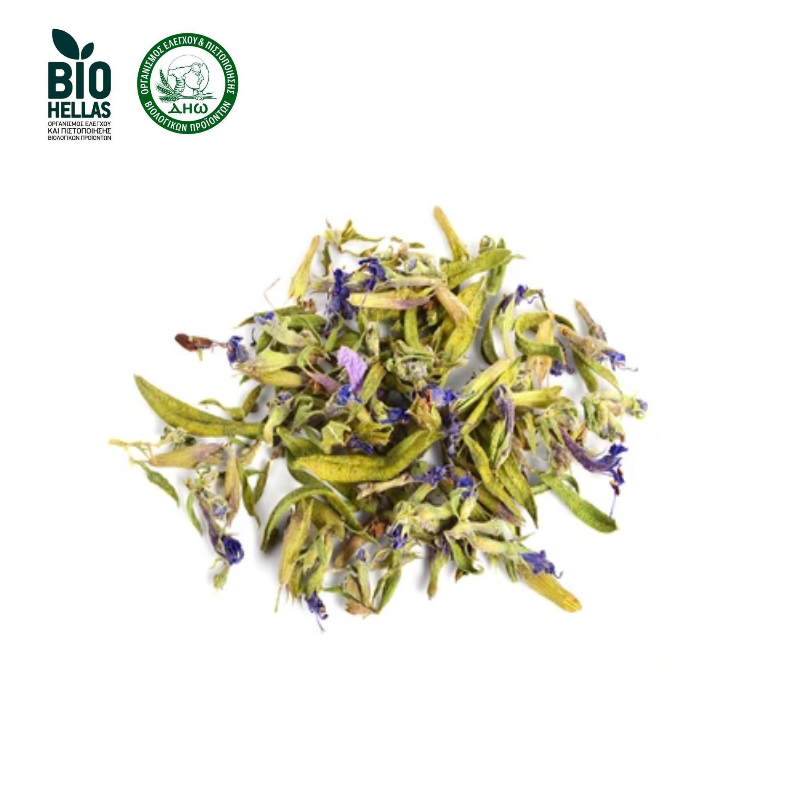Packaging: 40g (also available in 500g and 1kg) containing the terrestrial parts of the organic plant.
(The price includes VAT.)
Other Names: Hyssopus officinalis
Hyssop is a herb known since ancient times. Hippocrates used it for pleurisy, and Dioscorides recommended it for asthma and cataracts in combination with wormwood. Its name derives from the Hebrew "Esob," and it is often mentioned in the Bible.
Properties of Hyssop
Hyssop contains up to 2% volatile oil (mainly pinocamphone), flavonoids, a glycoside (hyssopin), diosmin, oleanolic acid, and up to 8% tannins. It acts as an antispasmodic, expectorant, diaphoretic, sedative, and antiseptic. Hyssop has a wide range of applications, most of which are due to the antispasmodic action of the bitter substance it contains (marubiin). It is used for coughs, bronchitis, and chronic catarrh. Its diaphoretic properties make it beneficial for the common cold. It can also serve as a neurotonic in cases of anxiety, hysteria, and mild epilepsy.
Hyssop can be combined for coughs and bronchitis with elderberry, thyme, sage, eucalyptus, and mint. For the common cold, it can be combined with agrimony, elderflowers, and mint.
Dosage: Drink 2-3 times a day. For a sore throat, gargle with hyssop tea before drinking it.
Additional Benefits
Hyssop has expectorant, diaphoretic, anti-catarrhal, and antibacterial properties. The leaves and flowers can be used fresh or dried. Infusions are used for coughs, colds, and chest conditions.
As a fragrant and medicinal plant, hyssop is antispasmodic, antifungal, antiseptic, antibiotic, tonic, astringent, and stomachic, and it helps relieve gas in the stomach. It has the ability to reduce fever. The tea is used for gargling, as its analgesic action soothes coughs and sore throats, and it is also good for heart health. Additionally, it boosts the immune system as it is diuretic and a natural remedy for edema. Its diuretic properties lead to frequent urination, which can help reduce blood pressure by flushing out toxins from the body.
Women’s Health
Hyssop tea also helps women with menstrual issues. It can assist women with irregular cycles to return to their normal cycle and may help reduce some symptoms of menstruation.
Gastrointestinal Stimulation
The hyssop herb has also been observed to stimulate the gastrointestinal system.
Precautions
Hyssop in the mentioned dosages as tea or tincture is considered safe and without side effects. However, its essential oil has been reported to potentially induce seizures; therefore, it is not recommended for individuals with epilepsy or other seizure disorders. Hyssop should be avoided during pregnancy.
Origin: Greece, Imathia region (cultivated).
Storage: Keep in a dark and cool place (5°C – 15°C).
Preparation:
Add 1 tablespoon of crushed organic hyssop (or a pinch of uncrushed) to a container with 2 cups of water. Boil the mixture for 5-10 minutes, then strain and drink the liquid.





